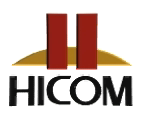Difference between revisions of "HiCom"
From Sega Retro
(http://www.guardiana.net/media/full_covers//0/7/2896.jpg?PHPSESSID=388ab510a5af5332247092ef23cdd620 http://www.guardiana.net/media/full_covers//0/7/3176.jpg?PHPSESSID=395b7593ccee3a84daaffcb795d1edaa) |
m (Text replacement - "| tseries= |" to "|") |
||
| (15 intermediate revisions by 7 users not shown) | |||
| Line 1: | Line 1: | ||
| − | {{ | + | {{CompanyBob |
| logo=HiCom logo.png | | logo=HiCom logo.png | ||
| − | + | | founded=1988-12-08 | |
| − | | founded= | + | | defunct=2004 |
| − | | defunct= | ||
| − | |||
| mergedwith= | | mergedwith= | ||
| mergedinto= | | mergedinto= | ||
| headquarters=South Korea | | headquarters=South Korea | ||
}} | }} | ||
| + | |||
{{stub}}'''HiCom''' (하이콤) were a video game developer and publisher headquartered in South Korea. They became '''e-SoftNet''' in October 1999. | {{stub}}'''HiCom''' (하이콤) were a video game developer and publisher headquartered in South Korea. They became '''e-SoftNet''' in October 1999. | ||
| − | Little is | + | Little is known about HiCom, however they are considered fairly important in the world of [[Sega]] as they were responsible for the distribution of consoles and games in South Korea, dating as far back as the [[Sega Mark III]]. Untill 1998 it was prohibited by Korean law to import and/or distribute Japanese media, including videogames. The way around this was to license a third-party (preferably Korean) business to distribute a Japanese product. Nintendo did this as well, by letting Hyundai Electronics distribute the NES, renamed as Comboy. HiCom apparantly distributed the Sega Mark III with [[Oacs]]. From 1997, they sold Mega Drive 2 under original name. |
| − | HiCom became an official third-party developer for [[Sega of America]] in June 1996 in the hopes of providing [[Sega Mega Drive]] games to the west, however all of their titles were canceled as Sega focused more on the [[Sega Saturn]]. | + | HiCom became an official third-party developer for [[Sega of America]] in June 1996 in the hopes of providing [[Sega Mega Drive]] games to the west, however all of their titles were canceled as Sega focused more on the [[Sega Saturn]]. After becoming "e-SoftNet", they ceased to exist in 2004. All their MMO's stayed online, for they were mostly taken over by other studios (which often consisted of former e-SoftNet staff). |
==Softography== | ==Softography== | ||
| − | + | {{CompanyHistoryAll|HiCom}} | |
| − | |||
| − | |||
| − | |||
| − | |||
| − | |||
| − | |||
| − | |||
| − | |||
| − | === | + | ==References== |
| − | + | <references /> | |
| − | |||
| − | |||
| − | |||
| − | [[Category:Third- | + | [[Category:Third-party software developers]] |
| − | [[Category:Unlicensed | + | [[Category:Unlicensed third-party software publishers]] |
Latest revision as of 12:58, 19 March 2024
This short article is in need of work. You can help Sega Retro by adding to it.
HiCom (하이콤) were a video game developer and publisher headquartered in South Korea. They became e-SoftNet in October 1999.
Little is known about HiCom, however they are considered fairly important in the world of Sega as they were responsible for the distribution of consoles and games in South Korea, dating as far back as the Sega Mark III. Untill 1998 it was prohibited by Korean law to import and/or distribute Japanese media, including videogames. The way around this was to license a third-party (preferably Korean) business to distribute a Japanese product. Nintendo did this as well, by letting Hyundai Electronics distribute the NES, renamed as Comboy. HiCom apparantly distributed the Sega Mark III with Oacs. From 1997, they sold Mega Drive 2 under original name.
HiCom became an official third-party developer for Sega of America in June 1996 in the hopes of providing Sega Mega Drive games to the west, however all of their titles were canceled as Sega focused more on the Sega Saturn. After becoming "e-SoftNet", they ceased to exist in 2004. All their MMO's stayed online, for they were mostly taken over by other studios (which often consisted of former e-SoftNet staff).
Softography
Master System
- Ali Baba and 40 Thieves (1989)
- Magical Tree (1989)
- Super Arkanoid (1990)
- Super Columns (1990)
- Super Bioman I (1992)
- Gaegujangi Kkachi (1993)
- E.I.: Exa Innova (19xx)
- Galaxian (19xx)
- Pooyan (19xx)
Mega Drive
- Insector X (1990)
- Sonic & Knuckles (1994) (re-release)
- Sonic Classics (1995)
- Virtua Fighter 2 (1996) (re-release)
- IF (unreleased)
- Power Ball AD2001 (unreleased)
